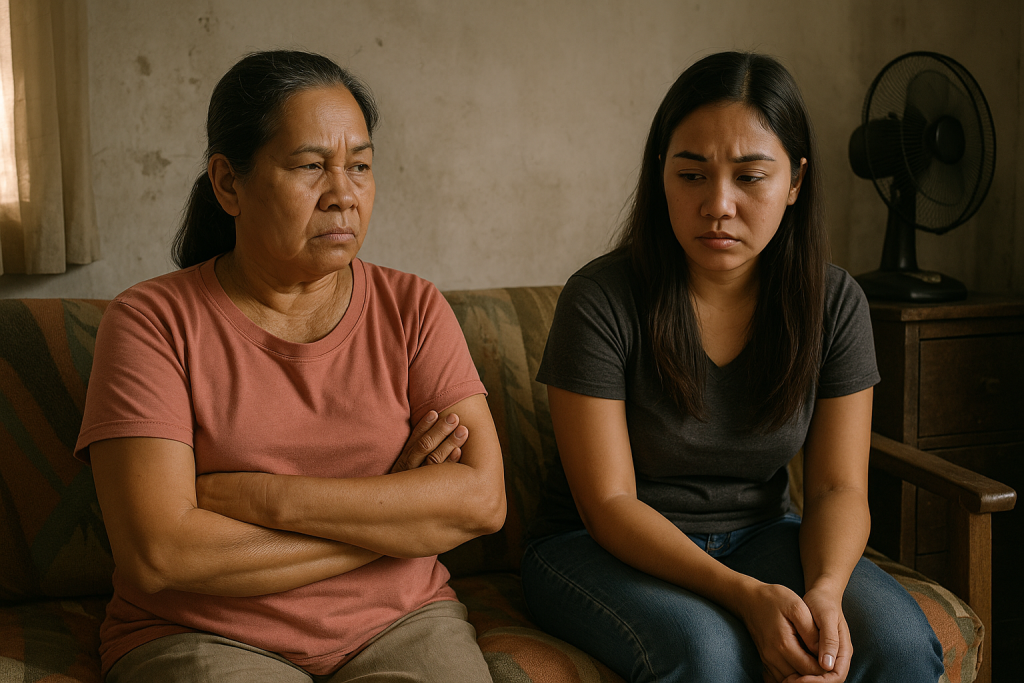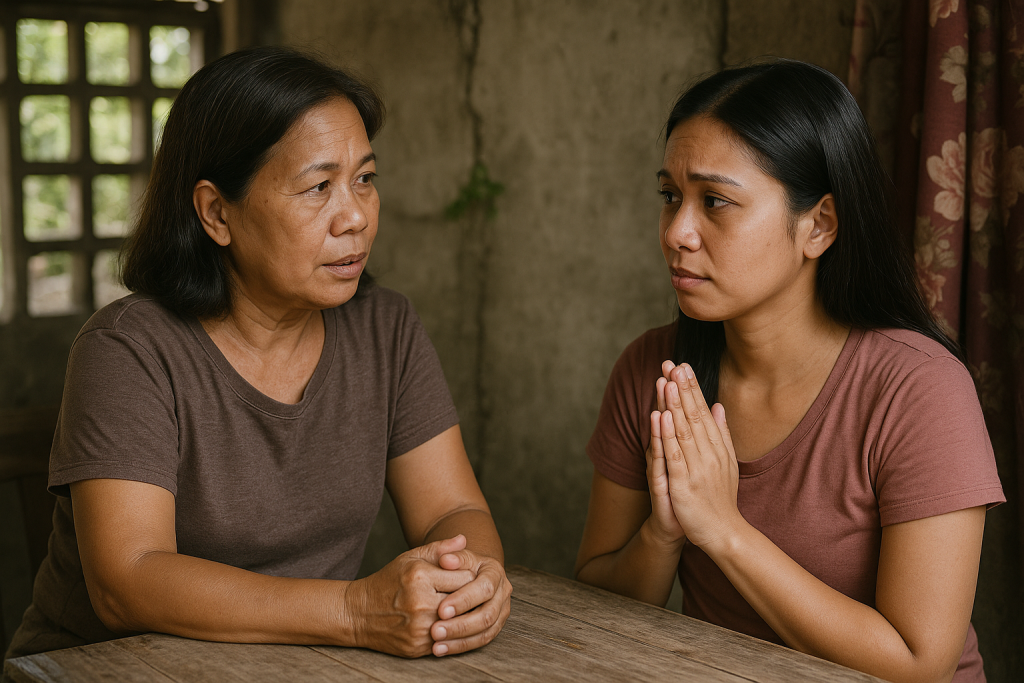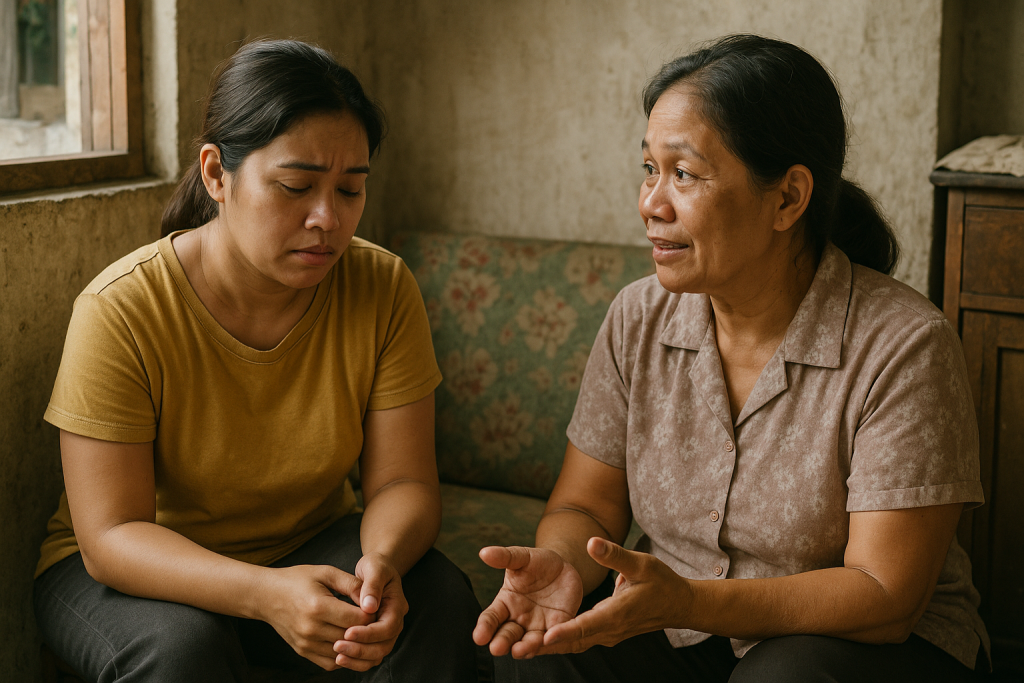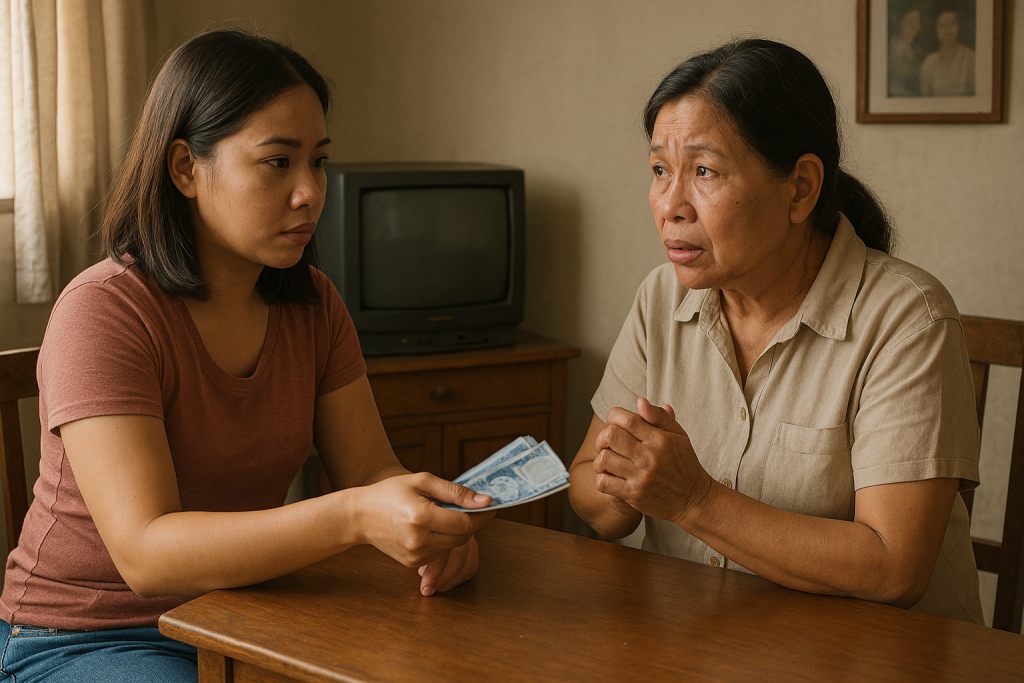Money is one of the most important things in life, and yet, we often treat it like a secret.
I’ve been a personal finance advocate for years. I’ve talked to couples, parents, young professionals, even retirees about their finances.
But one thing that never fails to surprise me?
How deeply uncomfortable most people feel when it’s time to talk about money… especially with family.
And yes, I’ve been there too.
The Conversation I Avoided for Too Long
Years ago, I had to tell a close family member that I couldn’t lend money anymore.
She had asked for help a few times before—pang-tuition ng anak, pambayad ng bills, pampuhunan sa maliit na negosyo.
At first, I said yes. I wanted to help. I knew she was struggling.
But eventually, it started affecting my own family’s budget.
Nakokompromiso na ‘yung emergency fund namin.
But I couldn’t say no. Or at least—I didn’t know how to say no.
So I did what many people do:
I avoided the conversation.
Didn’t reply to the message right away.
Dodged the topic when we saw each other.
Tried to “wait it out” and hope the problem would go away.
Spoiler alert: It didn’t.
And when the truth finally came out, it hurt more than if I had been honest from the beginning.
She felt betrayed. I felt guilty. And our relationship got strained.
That was one of my wake-up calls:
Avoiding the money talk doesn’t protect the relationship—it slowly damages it.
Why Is It So Hard to Talk About Money with Family?

Here’s what I’ve learned over the years—not just from my own story, but from hundreds of other people I’ve helped:
1. We Don’t Want to Disappoint the People We Love
Saying “no” or even just setting a boundary can feel like letting someone down.
And when it’s your parents, siblings, or cousins—it feels even heavier.
2. We Were Taught That Money is a Private Matter
Many of us grew up hearing “money is not to be talked about.”
Especially in Filipino families, we often keep financial struggles to ourselves.
Talking about it can feel like exposing a wound.
3. There’s Often a Power Dynamic
If you’re the one earning more, you don’t want to come off as mayabang.
If you’re the one asking for help, you don’t want to feel ashamed or inferior.
4. We Tie Money to Love
This is one of the biggest reasons.
We’ve internalized that helping financially = love.
So when we say no, we worry they’ll think we don’t care.
But Silence Creates Stress

Here’s the truth:
When we avoid the conversation, it doesn’t remove the tension. It just buries it.
Resentments build. Misunderstandings grow.
And instead of solving the money issue, we create emotional distance.
The silence becomes heavier than the money ever was.
So How Do We Talk About It—Kindly and Clearly?

It’s not easy. But it is possible.
Here are some things that have helped me and the families I work with:
✅ 1. Start from a Place of Respect and Care
You don’t need to come with judgment or a long explanation.
Sometimes all you need to say is,
“I care about you, and that’s why I want to talk about this openly.”
✅ 2. Use “I” Statements Instead of Blame
Instead of saying, “You keep asking for money,” try,
“I’ve been having a hard time balancing our own budget, and I realized I need to set clearer limits.”
It sounds gentler, and it’s less likely to trigger defensiveness.
✅ 3. Acknowledge the Emotion
Validate their feelings:
“I know this might be disappointing.”
“I know you’re in a hard place right now.”
Empathy goes a long way in keeping the trust intact.
✅ 4. Offer What You Can, Not Just What You Can’t
Even if you can’t give financially, you can still support in other ways:
-
Help look for job opportunities
-
Share budgeting tools or tips
-
Offer emotional support
Let them know you’re still there for them, just in a different capacity.
✅ 5. Create Clear Boundaries Before the Need Arises
If you already know you can only give a certain amount per month for family support—set that ahead of time.
“Hanggang dito lang po talaga kaya ko. Sana maintindihan ninyo.”
Boundaries are not rejection.
Boundaries are protection—for you and for them.
Love Doesn’t Mean Saying Yes All the Time

Saying “no” to family doesn’t make you less loving.
Talking about money doesn’t make you selfish.
It makes you honest. And honesty, done with compassion, builds stronger relationships in the long run.
If this is something you’re struggling with now—whether you’re the one always being asked, or the one too shy to ask—please know:
You’re not alone.
You’re not bad with money.
You’re just human.
And sometimes, the hardest conversations are the ones that bring the most healing.
Want more personal finance tips, join my email list,and let’s keep in touch!

